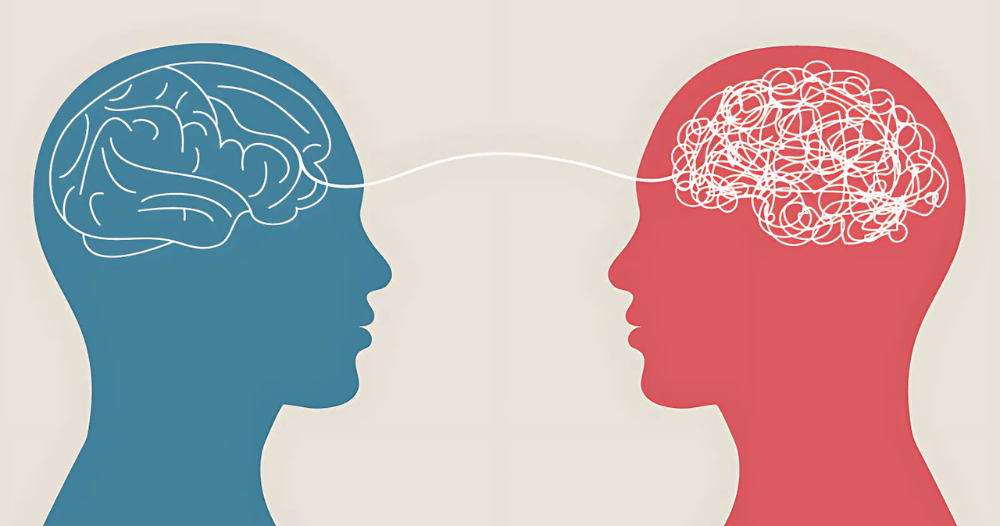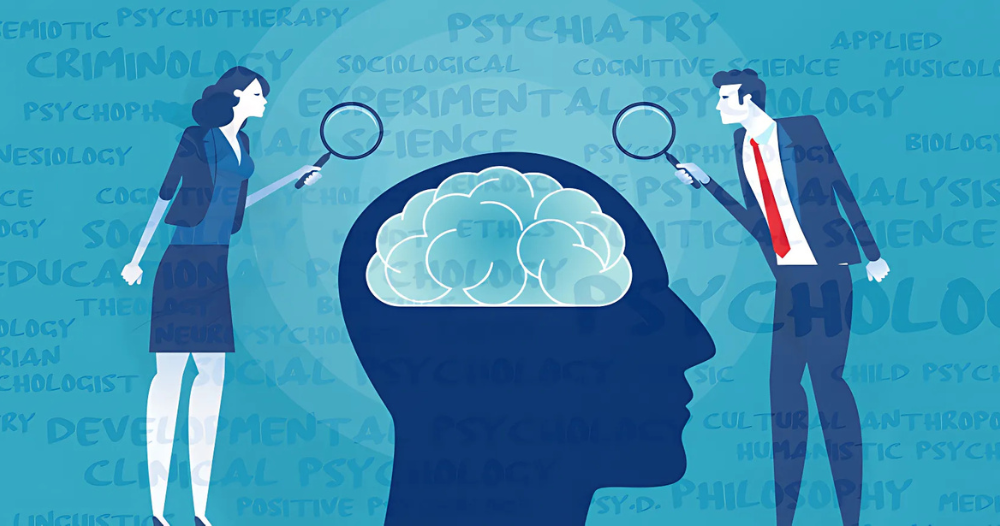Explore the fascinating world of clinical psychology! Discover what clinical psychologists do, the benefits of therapy, and how this field helps individuals overcome mental health challenges.
Table of Contents
Introduction
Have you ever wondered what happens when someone goes to therapy? You know, the person who’s been struggling with anxiety, depression, or just feeling a bit ‘off’? Well, they might be seeing a clinical psychologist. But what exactly does that mean?
Clinical psychology isn’t just about talking through your problems; it’s about understanding the mind, helping people heal, and guiding them toward mental wellness. If you’ve ever been curious about this field, or if you’re thinking about pursuing it yourself, then you’re in the right place! In this article, we’re going to dive deep into what clinical psychology is, what clinical psychologists actually do, and why their role is so crucial in today’s world.
What is Clinical Psychology?

In simple terms, clinical psychology is the branch of psychology that focuses on diagnosing and treating mental health disorders, emotional problems, and behavioural issues. Unlike some other areas of psychology, clinical psychologists are trained to work with individuals on a one-to-one basis, providing therapy, conducting assessments, and offering support for a variety of mental health challenges.
You might be wondering, “Is this just therapy?” Well, not quite! While therapy is a big part of clinical psychology, it’s a whole lot more. Clinical psychologists also conduct research, design treatment plans, and collaborate with other healthcare professionals to ensure a well-rounded approach to mental health care.
Key Areas of Clinical Psychology:
- Assessment and Diagnosis: Clinical psychologists are experts at assessing mental health issues and diagnosing disorders like anxiety, depression, and even more severe conditions like schizophrenia.
- Therapy and Treatment: They use evidence-based approaches to help patients manage their symptoms and lead fulfilling lives. This can include cognitive-behavioural therapy (CBT), psychodynamic therapy, and more.
- Research: Many clinical psychologists are involved in groundbreaking research that helps improve treatment techniques and mental health understanding.
- Collaboration: Clinical psychologists often work with psychiatrists, social workers, and other professionals to provide comprehensive care.
How Does Clinical Psychology Help People?

You might be thinking, “Sure, therapy is great, but how does it really help someone in the long run?” Well, there are numerous ways clinical psychology can make a massive difference in someone’s life.
Whether it’s managing day-to-day stress or tackling deeply ingrained emotional issues, clinical psychology offers tools and strategies that go beyond just talking about problems. Here are some of the ways it helps:
1. Healing from Trauma:
Traumatic experiences can have lasting effects, sometimes leading to post-traumatic stress disorder (PTSD). A clinical psychologist helps individuals process their trauma, offering them coping strategies and emotional support to heal over time.
2. Managing Mental Health Conditions:
Mental health conditions like depression, anxiety, or obsessive-compulsive disorder (OCD) can be crippling. Through therapeutic interventions, clinical psychologists teach patients how to manage their symptoms and live productive, balanced lives.
3. Improving Relationships:
Not only does clinical psychology help individuals, but it can also be valuable for improving relationships. Whether it’s through couples therapy or helping individuals manage family dynamics, a psychologist can offer insights that help build stronger, healthier relationships.
4. Promoting Personal Growth:
Even if someone doesn’t have a diagnosed mental health issue, clinical psychology can be helpful in promoting personal growth. It’s all about improving self-awareness, building emotional resilience, and developing better coping mechanisms for the challenges life throws at us.
The Role of a Clinical Psychologist

So, you might be asking, “What exactly does a clinical psychologist do on a day-to-day basis?” Well, their work can vary, but here’s a breakdown of the main roles and responsibilities they take on:
1. Conducting Psychological Assessments
Clinical psychologists are trained to assess mental health conditions by using various tools such as interviews, questionnaires, and standardised tests. They might spend hours with a patient, gathering information about their history, symptoms, and emotional wellbeing. From there, they can create a treatment plan tailored to the individual’s needs.
2. Providing Therapy
Therapy is probably the most well-known aspect of clinical psychology. Whether it’s individual therapy, group therapy, or family therapy, psychologists work with clients to help them understand their emotions, improve coping strategies, and alter unhelpful thought patterns.
Here are a few types of therapy they might use:
- Cognitive-behavioural therapy (CBT) – Focuses on changing negative thought patterns and behaviours.
- Interpersonal therapy (IPT) – Addresses interpersonal issues and helps improve relationship dynamics.
- Psychodynamic therapy – Explores how past experiences influence present behaviour.
3. Collaborating with Other Healthcare Professionals
Mental health care isn’t a one-person job. Clinical psychologists often collaborate with doctors, psychiatrists, social workers, and other healthcare professionals. For instance, if a patient has a severe mental illness that requires medication, the psychologist might work closely with a psychiatrist to provide a comprehensive treatment plan.
4. Research and Development
Some clinical psychologists focus on research to improve our understanding of mental health. They might study new treatment methods or dive deep into the causes of specific mental health issues. Their research contributes to the development of new therapies, assessments, and overall approaches to treating mental health disorders.
Common Conditions Treated by Clinical Psychologists

Clinical psychologists treat a wide range of mental health issues. Here’s a list of the most common conditions they help with:
- Anxiety Disorders: Including generalised anxiety disorder (GAD), panic disorder, and social anxiety.
- Depression: Whether it’s mild or severe, depression is one of the most common conditions treated in clinical psychology.
- Post-traumatic stress disorder (PTSD): Following traumatic events, PTSD can cause lasting emotional distress.
- Obsessive-compulsive disorder (OCD): Involves repetitive thoughts and actions.
- Phobias: Such as fear of flying, spiders, or social situations.
- Personality Disorders: Including borderline personality disorder (BPD) and narcissistic personality disorder.
Conclusion
Clinical psychology is an incredibly diverse and rewarding field that plays a key role in improving mental health. Whether it’s helping someone work through trauma, manage a mental health disorder, or achieve personal growth, clinical psychologists are there to support individuals through their emotional challenges.
By combining therapy, assessments, and collaboration with other healthcare professionals, clinical psychologists help people navigate life’s toughest moments. If you’re considering seeing a clinical psychologist, or if you’re interested in pursuing a career in this field, rest assured that you’re entering a space where positive change and growth are possible. After all, the mind is a powerful thing, and with the right support, we can all work toward better mental well-being.
Difference Between Shame vs Toxic Shame?
For Video Content: Checkout Our Youtube Channel
FAQs about Clinical Psychology
Do I need a referral to see a clinical psychologist?
No, in many cases, you can see a clinical psychologist without a referral. However, if you’re seeing a psychiatrist or another healthcare provider, they may recommend a psychologist to work with you.
What’s the difference between a clinical psychologist and a counsellor?
Clinical psychologists tend to have more advanced training and are often involved in diagnosing mental health disorders, whereas counsellors focus more on providing general support and guidance.
How long do therapy sessions typically last?
Sessions usually last between 50 minutes to an hour. The number of sessions you might need varies depending on your individual needs and the type of therapy you’re receiving.
Can clinical psychologists prescribe medication?
No, clinical psychologists cannot prescribe medication. However, they can work alongside a psychiatrist who can prescribe medication if necessary.
By: Ardansharma


